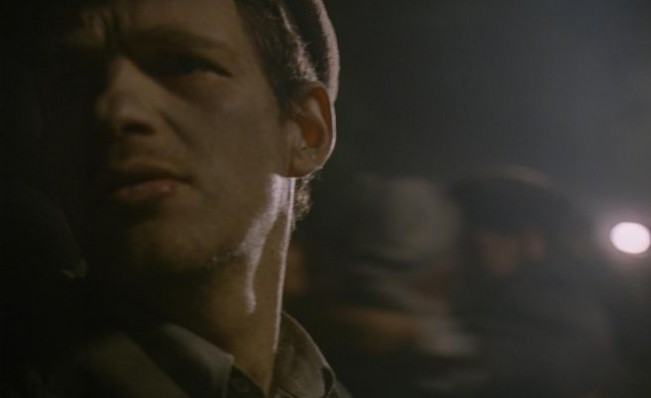

By David Poland poland@moviecitynews.com
Cannes You Dig It?: Episode 1
It’s been an interesting start to this year’s annual family reunion. Some inspired filmmaking, but aside from the most commercial movies here – Mad Max: Fury Road and Inside Out, both playing out of competition – there is a distinct lack of greatness worth fighting about into the night.
Legendary names like Woody Allen and Gus Van Sant have delivered some of their weakest work here. Favorites from recent festivals, like Matteo Garrone and Yorgos Lathimos, have delivered visceral, compelling work that seems to lose its way as they slide into the third act. The style of gentle, thoughtful Asian cinema is on display with Kore-Eda and Naomi Kawase, but lovely though it may be, it doesn’t pack the big punch.
Rams (aka Hrutar) is an odd stand-out, telling the tale of estranged brother farmers in their golden years faced with the end of their prize-winning bloodline of livestock as well as their family bloodline. Twenty hours after viewing it and having that “it’s a slow, weird sheep movie” feeling, the complete and flawless nature of the universe Grimur Hankonarson creates for the film is feeling a lot stickier than I would ever have expected. There is something sublime about the film that becomes of even greater value when set against the backdrop of such big swings and such unfortunate near-misses.
Also, there is Son of Saul, which seems destined to become a big deal, though I found myself more interesting in the gimmick of the film – a visually myopic experience of one man who is in a unique position to wander through as horrible a place as has been on this earth, the business end of a Nazi death camp. The film has been touted for being shown on 35mm, though the filmmaker has actually made the film in 1.33:1 ratio, emulating the filmmaking of the period. After about 30 minutes, the character who we are attached to finds one dead body of unique interest and the film becomes about his effort to bury this one, properly overseen by a rabbi, not just burn it with the others. For me, this is when the visual gimmick of the experience, for me, starts to interfere profoundly with the emotional journey of the story. There is no denying that the power of any recreation of the Jewish Holocaust. But for me, it is a starting point, not enough as a backdrop. Personally, I felt like I was having one of those “you are in it” Holocaust experiences from Jewish summer camps… which inevitably devolves from the reflection on how horrible it is to be seen as something less than human by other humans to “when’s lunch?” at some point. The most profound notion that stuck with me as I watched the film was that these Jewish men are doing this to other Jews while we know, as the film tells us up front, that they will all be killed within months as they reach the human boiling point of their agreement to participate in this kind of work. That narrative tension was much more interesting to me than the very personal story that the film chooses and, for me, didn’t go anywhere more profound than the first blush of the idea.
The film most likely to find critical acclaim in the festival so far is The Lobster, which has the surrealistic premise of a society setting rules for coupling, oddly reflecting Woody Allen’s Sleeper and Kubrick’s A Clockwork Orange with the surrealist bent of someone young and hip like Richard Ayoade. It’s a film you want to fall in love with… and you have to, a little. But even from the early unrolling of its premise, there is a sense that it is not being sculpted with quite a sharp enough knife. Then, it loses its bearings, as it flips the premise on its head and tries to define the tyranny of The Loners. It is such a deep vein that the film is tapping, making it all the more frustrating when it can’t close the deal. Or maybe, on multiple viewings, it will.
If there is a problem with all film festivals, none more than Cannes, it is that the pressure to have strong opinions about complex ideas in an instant is as real as running into the first person you know within minutes of seeing any film. Like fine wine, really good films need time to breathe. But there is this truth too… real greatness is felt in the gut and can come instantly and undeniably. I am still waiting for that on this particular journey… that is, aside from George Miller kicking ass.
















Any thoughts on “Sea of Trees?”